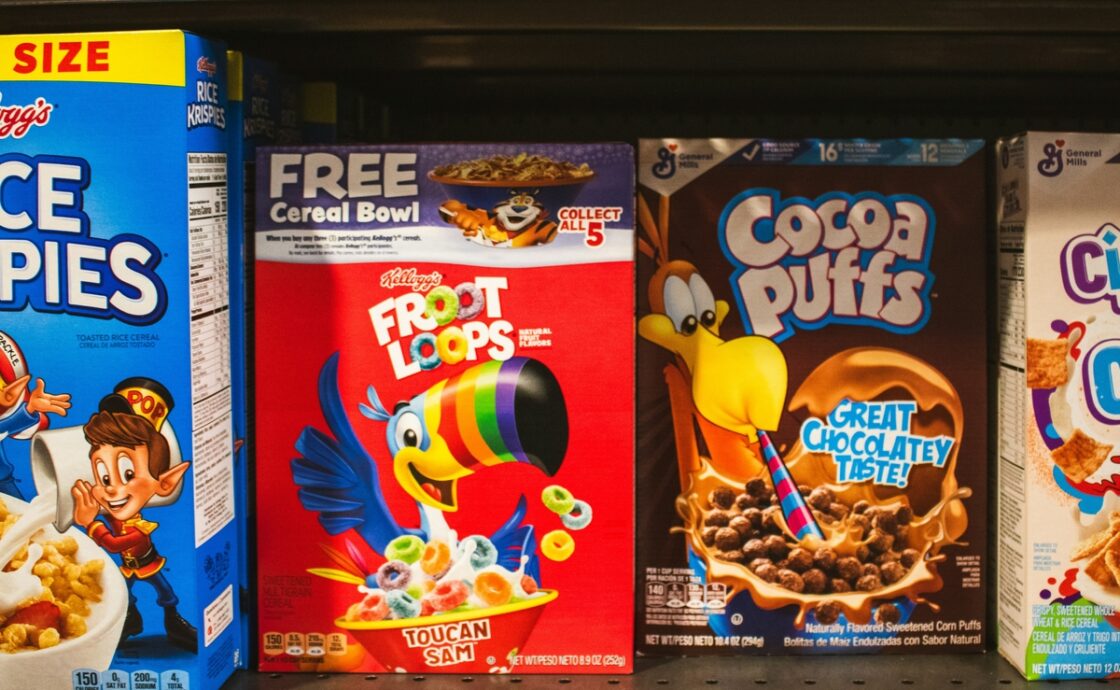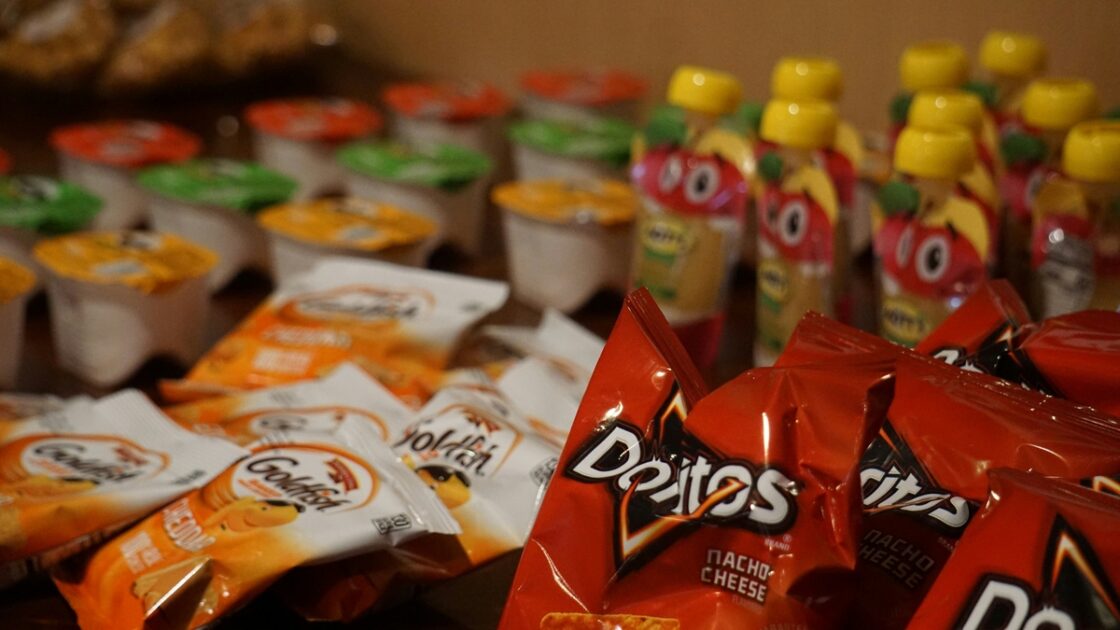
From the titanium oxide present in Hostess chocolate cupcakes to the potassium bromate present in some grocery store breads, American meals is stuffed to the brim with doubtlessly harmful components. But when Well being and Human Providers Secretary Robert F. Kennedy Jr. has something to say about it, this will likely quickly be altering. This March, Kennedy advised prime meals executives that he needs “the worst substances” out of meals earlier than the top of his time in workplace — if not sooner.
Preventative Healthcare Begins with the Meals System
Consultants agree: Good well being begins with good meals. A 2019 analysis assessment in Vitamins compiled a bunch of knowledge showcasing the way in which that preventative diet might help cut back the incidence of heart problems, diabetes, and most cancers1. And the proof continues to stack up — consultants additionally not too long ago discovered hyperlinks between a high-sugar weight loss plan and elevated danger of lung most cancers2.
“There’s a essential must shift our dietary focus from ultra-processed meals, which are sometimes excessive in components, sugars, and unhealthy fat, to complete meals that present important vitamins and help general well being,” says Dr. Joel Gator Warsh, MD, Board-Licensed Pediatrician and creator of Parenting at Your Baby’s Tempo: The Integrative Pediatrician’s Information to the First Three Years. “Emphasizing complete meals — like fruits, greens, grains, and proteins — might help cut back the danger of power ailments and promote a extra sustainable and healthful consuming sample.”
Kennedy’s Make America Wholesome Once more plan champions a weight loss plan of complete meals whereas searching for to eradicate hazardous components from the meals system. Listed below are those most deserving of the axe.
Dimming Synthetic Dyes for Good

This previous January, earlier than President Donald Trump and Kennedy took workplace, the FDA revoked the authorization for Pink 3, a standard synthetic coloring, as a consequence of proof of potential well being dangers — together with an elevated danger of most cancers. This, based on Gator Warsh, was an vital first step in making our meals system safer and more healthy. “The revocation of Pink 3’s authorization as a consequence of its potential well being dangers highlights the continuing want to judge and prioritize the security of meals components utilized in the USA,” he mentioned.
Regardless of this step in the correct path, there are nonetheless a great deal of synthetic dyes in meals that deserve a re-assessment. These embody Pink 40 dye, which Gator Warsh characterizes as “probably the most generally used meals dyes within the U.S.” Very like Pink 3, Pink 40 dye has been linked to behavioral issues in kids, main the State of California to ban it from meals and drinks bought in public colleges3. Analysis revealed in Toxicology Experiences in 2023 discovered that it might trigger DNA harm and colonic irritation in mice4. “Its security continues to be debated amongst well being professionals and shopper teams,” says Gator Warsh.
Different meals dyes like Yellow 5 and Yellow 6 have equally been linked to temper and behavioral issues in kids, and each Yellow 6 and Blue 2 have additionally been discovered to be doubtlessly carcinogenic5. “Given these considerations,” says Gator Warsh, “a essential assessment and stricter regulation of those and different synthetic colorants are important to make sure they don’t pose well being dangers.” A widespread meals dye ban might go a good distance for preventative healthcare.
A Push to Cut back Sugars
Added sugars like excessive fructose corn syrup have been linked to well being points starting from weight problems to kind 2 diabetes to liver illness — and because of their ubiquity in all the pieces from breakfast cereals to barbecue sauce, they are often troublesome to keep away from.

“Reducing using HFCS and different added sugars would seemingly have a considerable optimistic affect on public well being,” says Gator Warsh. “Insurance policies might goal to restrict its inclusion in processed meals and encourage using pure sweeteners sparsely.”
Kennedy agrees. Simply after his affirmation in February, he shared his purpose of eradicating soda and different processed meals from permissible purchases for beneficiaries of SNAP, which supplies meals advantages to low-income households. “The one place that I might say that we have to actually change coverage is the SNAP program and meals stamps and in class lunches,” Kennedy advised Fox Information in February. “There, the federal authorities in lots of circumstances is paying for it. And we shouldn’t be subsidizing individuals to eat poison.”
That mentioned, Kennedy’s mission would seemingly show harder than it sounds. The federal Meals and Vitamin Act of 2008 permits advantages from the SNAP program for meals stamps for use for “any meals or meals product meant for human consumption,” besides alcohol and scorching meals.
To exclude meals excessive in added sugars, Congress must change the regulation or states must request waivers to allow them to limit purchases. Whereas state lawmakers have made many such requests up to now 20 years, they’ve by no means been accredited. Insurance policies like soda taxes, then again, have had encouraging outcomes world wide and may very well be a greater manner ahead in minimizing the destructive penalties of added sugars on our well being.
Pesticides and Herbicides Have to Go
The emergence of corn and soy that’s been genetically modified to resist the applying of harmful pesticides and herbicides has led to an elevated presence of those (and different chemical compounds) in our meals system. And for Gator Warsh, it’s excessive time we mentioned goodbye to the herbicide glyphosate for good.
“This broadly used herbicide has been underneath scrutiny for its potential to trigger most cancers and different well being points,” he says. “Decreasing its use and residue in meals merchandise, particularly in crops like soy and corn which are pervasive within the meals provide, can be a prudent measure to lower potential well being dangers.”

Marketed as Roundup by Bayer, which acquired Monsanto in 2018, glyphosate is a identified human carcinogen that will increase the danger of most cancers by 41%, based on a 2019 examine6. Different pervasive herbicides embody paraquat, which has been linked to an elevated danger of Parkinson’s Illness.
Neonicotinoid pesticides like thiacloprid and thiamethoxam have been used more and more within the American agricultural system since 2005, when expired patents paved the way in which for generic merchandise. These pesticides have been linked to potential neurological points together with reminiscence loss, to not point out devastating results for bee populations7.
Selecting natural produce and merchandise is an effective solution to begin decreasing publicity to those chemical compounds. However to profit public well being, concrete steps to scale back their use can be a fair higher solution to get them out of the meals system for good.
It’s Time to Re-Consider GRAS
If doubtlessly harmful components are pervasive within the American meals business, it’s largely because of the GRAS (Usually Acknowledged as Protected) system. GRAS is a designation for meals components that consultants take into account secure when used as meant. However based on Gator Warsh, many components presently in the marketplace haven’t been subjected to “enough impartial assessment or complete analysis to substantiate their security.”
“There ought to be an replace within the GRAS laws to require extra rigorous, clear, and impartial analysis earlier than these substances could be accredited,” he says.
Kennedy has already taken a stand in opposition to what he dubs a “loophole” within the system: the self-affirmed GRAS pathway. This pathway permits meals producers to convene an impartial panel of consultants and have them assess security knowledge with out notifying the FDA. In consequence, there is no such thing as a public database or itemizing of self-affirmed substances. Kennedy has directed the FDA commissioner to take steps to get rid of this pathway, primarily rendering the now-voluntary FDA GRAS notification program necessary.

Gator Warsh believes that chemical compounds which have already been accredited underneath GRAS deserve a re-assessment. “Many substances that have been beforehand thought of secure would possibly pose well being dangers that weren’t understood or detectable with earlier scientific strategies,” he says. “A scientific reevaluation of those substances might assist guarantee they meet present well being and security requirements.”
A Mission at Odds with a Funds-Slashing Administration
For Gator Warsh, Kennedy’s purpose to eradicate meals dyes by the top of his time period is bold, to say the least. “Given the pervasive use of those dyes within the meals business and their affect on shopper merchandise’ attraction,” he says, “eradicating them might face vital resistance each from throughout the business and presumably from customers accustomed to the aesthetic these dyes present.”
He believes {that a} “multidisciplinary strategy” uniting regulatory companies, the meals business, scientific researchers, and public well being advocates is “important” to the success of Kennedy’s mission. He notes that with robust regulatory backing and substantial public well being advocacy, a transition to extra pure alternate options is feasible.
“Enhanced labeling necessities, stricter limits on allowable ranges of those components, and incentives for creating and utilizing safer alternate options can drive the transition in direction of a more healthy meals provide,” he says. “It’s essential that such initiatives are backed by stable scientific analysis and are attentive to rising well being knowledge to guard customers successfully.”
However the multidisciplinary strategy Gator Warsh is championing could also be hobbled by the present administration’s budget-slashing, with widespread FDA layoffs even prompting FDA meals division director Jim Jones to step down in February. And the slashing hasn’t waned since.
A Dangerous Time to Be Dismantling Vital Committees
Earlier this month, the Trump Administration eradicated the Nationwide Advisory Committee on Microbiological Standards for Meals and the Nationwide Advisory Committee on Meat and Poultry Inspection. These professional panels supplied important, neutral scientific recommendation and proposals to the USDA, FDA, and CDC. As a result of an Govt Order eliminating workplaces and committees that the President “has decided are pointless,” these committees now not exist.
Previous to its elimination, the NACMCF was within the means of reviewing the USDA’s Meals Security and Inspection Providers regulatory strategy for listeria, following a deadly outbreak linked to Boar’s Head deli meats in 2024. It had additionally been engaged on creating steering on addressing the rise in lethal foodborne diseases. This steering might have been essential throughout a 12 months during which hospitalizations and deaths from foodborne diseases greater than doubled, with most outbreaks linked to E. coli, Listeria, and Salmonella8.
The elimination of those two committees “considerably reduces alternatives for professional engagement with the USDA,” Bryan Hitchcock, Chief Science and Expertise Officer on the Institute for Meals Technologists, advised The New Lede. “This lack of professional enter can create gaps within the thoroughness and rigor of our meals security protocols and reduces public engagement and transparency within the course of.”
“The work the FDA and USDA does in relationship to meals security is actually ‘lethal critical,’” mentioned Mark Kastel, government director of OrganicEye, a farm coverage analysis group. “I might be the final one to say that the US has bulletproof regulatory oversight of the more and more consolidated meals processing business. However it appears dangerous to get rid of these panels, as part of reform, earlier than a greater strategy is in place.”
Sources:
- https://pmc.ncbi.nlm.nih.gov/articles/PMC6567185/
- https://www.discovermagazine.com/well being/high-sugar-linked-to-lung-cancer-expanding-our-understanding-of-diets-impact
- https://pubmed.ncbi.nlm.nih.gov/23026007/
- https://pmc.ncbi.nlm.nih.gov/articles/PMC10502305/
- https://www.cspinet.org/websites/default/information/attachment/food-dyes-rainbow-of-risks.pdf
- https://www.ncbi.nlm.nih.gov/search/research-news/3492/
- https://pmc.ncbi.nlm.nih.gov/articles/PMC5289916/
- https://www.thenewlede.org/2025/02/illnesses-and-deaths-from-food-outbreaks-skyrocketed-in-2024-report-finds/

